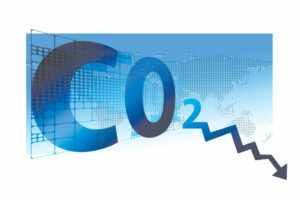BRUSSELS – Germany and Chile plan to launch a club of governments to help developing nations invest in decarbonizing industries like steel and cement-making at the COP28 climate summit next week, a document seen by Reuters showed.
The move comes weeks after the European Union launched the trial phase of its world-first carbon border tax that from 2026 will slap emission costs on CO2-intensive steel and cement imports to Europe, a policy that has caused disquiet among trading partners.
Germany and Chile’s “climate club” could attempt to soothe those concerns.
The partners will launch a matchmaking platform to connect emerging and developing countries with funding and technical support from governments and the private sector to decarbonise industries, according to a draft statement seen by Reuters.
The statement is due to be published on Dec. 1 during a launch event at the U.N.’s COP28 climate summit in Dubai.
“On hard-to-abate sectors, starting with steel and cement, we will advance conducive policy frameworks for accelerating decarbonization,” the statement said.
This will include attempting to coordinate international green industry standards, for example for counting the emissions in industrial products, it added.
Germany’s economy and climate ministry did not respond to a request for comment. A spokesperson for Chile’s environment ministry said the club “reinforces the importance of multilateralism and of working together in search of solutions”.
Berlin, which held an initial meeting of members in May to determine the club’s aims, has been drumming up support among governments and financing institutions.
A website for the club lists 33 members – including the U.S., Argentina, Australia, Canada, Colombia, Egypt, the European Union, Indonesia, Japan, Kenya, Mozambique, Morocco, Ukraine and the United Kingdom.
German Chancellor Olaf Scholz discussed the “climate club” at a meeting in Berlin this week with the heads of organisations including the World Bank, African Development Bank and World Trade Organization.
The scheme is something of an olive branch towards governments riled by the EU’s carbon border tax, known as the CBAM, by offering to work with these countries on cleaning up industries, rather than penalizing them.
“I would say that the climate club, in this case, is the carrot, and CBAM is the stick,” said Petter Lyden, co-head of international climate policy at campaign group Germanwatch.
“But to be really successful, this club needs the participation of more countries, because some of the biggest emerging economies with big industrial sectors are still missing,” he added.
Neither India nor China have joined so far. China, the world’s biggest steel exporter, has criticised the EU carbon border tax, which it calls a barrier to trade.
India plans to file a complaint to the World Trade Organization over the measure. The European Commission says the policy is designed to comply with WTO rules. – Reuters

